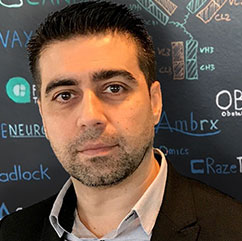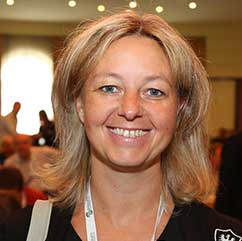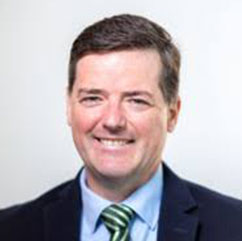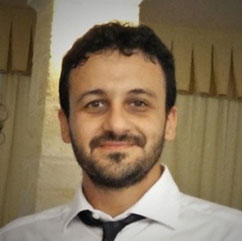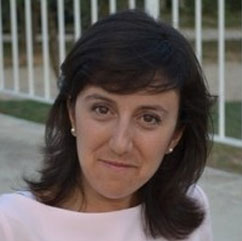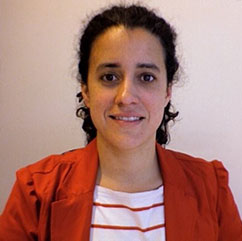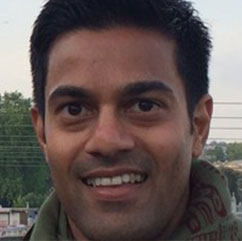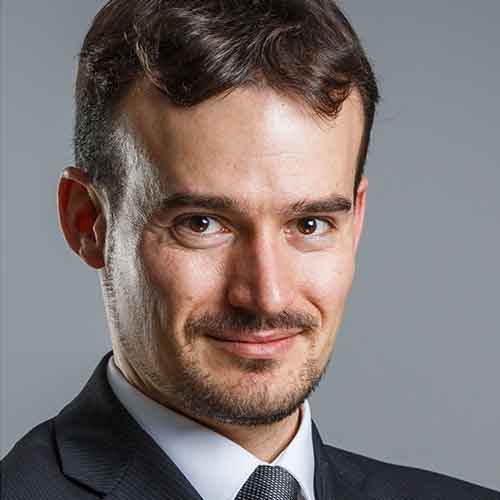This course will develop your knowledge on the intricacies of research and development collaborations. An appreciation of managing complex negotiations is useful when attending this course as it aims to expand the know-how and expertise necessary for negotiating complex and sometimes troublesome contracts.
Why Join This Course?
Participant interaction is one of the main teaching styles applied during this three-day course. Presented by experts in the field, much of the learning will be conveyed through case studies, break-out groups and discussions. The results of each group session will be discussed among your peers with an analysis of the results provided by the course leaders.
The course leaders have been specifically chosen for the experience and success in this field, and they aim to create an informal learning environment which helps develop your knowledge and your network.
Who Should Attend?
This course is designed for anyone wishing to expand their skills and deepen their knowledge of the intricacies of research and development collaborations. An appreciation of managing complex negotiations is useful when attending this course as it aims to expand the know-how and expertise necessary for negotiating complex and sometimes troublesome contracts.
Learning Objectives
- Handling communication between academia and industry within collaborations
- Managing expectations
- Improving your negotiation skills
- Nurturing alliances
- Handling IP within collaborations
Course Topics
- Deriving fair value from foreground IP
- Keeping track of IP - open innovation
- Stakeholder management
- Building and bulldozing corporate alliances
- Collaborative agreements as the bedrock of research relationships
- When things go wrong
- Creating a win win
- IP clauses - the different possibilities
- Managing the IP when projects overlap
- Programme
- Speakers
- Venue
Programme
-
Wed 18 September 2024
-
09:00 - 09:15 Course introduction
This short module introduces the course content, course directors, trainers and participants.
-
09:15 - 09:45 Getting started
A presentation on the different forms of collaboration and cooperation that we have with industry, and the various forms of agreement that we use to define the relationship, including: Material Transfer Agreements, Consultancy Agreements and Research Collaboration Agreements. This session will guide you through selecting the right form of agreement to align expectations and avoiding conflict.
-
09:45 - 10:45 Case study Inchworm
An academic wants to develop a relationship with a company; the Contracts Officer is brought in to advise on the terms of a collaboration. Is it possible to develop a win-win scenario?
-
10:45 - 11:15 Coffee Break
-
11:15 - 12:15 Case study feedback - Inchworm
Report back and discuss the issues raised - what was trivial and what was problematic?
-
12:15 - 13:30 Deriving fair value from foreground IP
Finding the right IP structure is only half the battle. We are still left with the issue of valuing the IP when we have little knowledge of the IP’s true value. What should we do? Should we take the academics’ opinion, consult with the Technology Transfer Office or trust the company? Or should we insist on a ‘wait and see’ strategy in which the discussion is deferred until we know what has been ‘invented’, and its commercial value. How can we avoid meaningless ‘agree to agree’ clauses in which one or other party is left exposed? What tools can we use, and which structure should we choose for the payments?
-
13:30 - 14:30 Lunch
-
14:30 - 15:30 Keeping track of IP - open innovation
What happens once the collaboration agreement has been signed? Is it filed never to be seen again or is it monitored and controlled? Who does what at your university and does the Contract Manager have any responsibility to track old agreements? How do we manage the obligation to grant access rights in EU projects and how do we follow up on the options we have granted in the contracts?
-
15:30 - 16:00 Coffee Break
-
16:00 - 17:15 Building and bulldozing corporate alliances
The pinnacle of any collaboration is the ‘strategic alliance’. These emerge over time as the relationship (built on mutual trust and knowledge) develops. That relationship is built slowly by honest dialogue, mutual need and generous exchange - and can be destroyed quickly by opportunism, bureaucracy and misunderstanding. In this session we examine the role of the Contract manager in both nurturing and destroying such alliances.
-
17:15 - 17:30 Today’s take away
What have we learned? How can we be perceived as facilitators rather than blockers of research relationships?
-
-
Thu 19 September 2024
-
09:00 - 10:30 Different possibilities on how to draft clauses on conflict resolution
In this session, we will explore the different options regarding conflict resolution arbitration, ordinary courts and examine the pros and cons of the different venues and choices of law. As a Contracts Manager, is there anything you can do to avoid the project ending in conflict?
-
10:30 - 11:00 Coffee Break
-
11:00 - 12:00 Collaborative agreements as the bedrock of research relationships
Successful collaborations are built on mutual trust, a common understanding of the mission and a balance of interests for all partners. This session will highlight the motivation for, and topics of, industrial collaborations with science partners and others. Examples such as bilateral collaborations, scientific networks, with and without public funding, and recent cases of joint labs on campus or industrial sites. These collaborations require well-balanced agreements. Possible hurdles include: EU state-aid regulations, which distinguish between contract work and cooperation, subcontracting in publicly funded projects, and IP regulations.
-
12:00 - 13:15 When things go wrong
Sometimes the collaboration will not have a happy ending. It can be a violation of the contract terms, or a different interpretation of the wording. Whatever the problem is, it will almost certainly create unpleasant conversations and shall require difficult negotiations to reach an agreement on how to resolve the problem. In the session, you will be presented with several real-life scenarios and given a role to play in trying to solve them.
-
13:15 - 14:15 Lunch
-
14:15 - 16:15 IP clauses - the different possibilities
We will introduce the different ‘parameters’ of IP clauses then break into small groups to discuss a number of small cases that exemplify different types of intellectual property scenarios.
Group work will feed into a wider discussion on the different ways in which IP rights can be managed and the most appropriate solutions for a given scenario. We will also discuss how to manage the extreme opening positions that we are often presented with and the importance of negotiating ‘rights’ rather than ‘ownership’, differentiating ‘background’ from ‘foreground’ and the imperative of maintaining academic freedom to research and collaborate.
Once we have determined how to manage the IP rights and the solutions that best match a given scenario, we face the challenge of drafting clauses that are clear, unambiguous and workable for a long term relationship. Again, group work will be used to share experiences and discuss and suggest wording.
The end point is a better understanding of the IP clauses we can use and the confidence to negotiate them.
-
16:15 - 16:45 Coffee Break
-
16:45 - 17:45 Managing the IP when projects overlap
Most researchers are involved in multiple collaborations; both simultaneously and sequentially. So are businesses. Part of our role is to ensure that there are no conflicts and to ensure that academic freedom (to work with others) is preserved. In this session, we will look at two real-life cases to explore which problems can occur when we try to manage the many different sources of funding and contractual obligations that bind researchers.
-
17:45 - 18:00 Today’s take away
Learning points from day 2
-
-
Fri 20 September 2024
-
09:00 - 10:30 Case study: piggy-in-the-middle. Maintaining the respect and co-operation of all stakeholders (including academics)
We work in an intensely busy environment where emails (with large ‘cc lists’) have become a common form of communication replacing face-to-face meetings and leading to all kinds of ‘buck-passing’. We must operate and perform in the middle of all this poor communication, rise above it and focus on the task: the deal. Often, we act with very little real authority. We have the power to sign off, but will be reluctant to do so as long as someone, somewhere, has expressed concerns.
In this session, we look at a sponsored studentship negotiation that went badly wrong, and ask whether the Contracts Officer could have done anything about it?
-
10:30 - 11:00 Coffee Break
-
11:00 - 13:00 Discussions between academic and business
How should we manage the interface between the academic and the business? It is our role to define the relationship on paper when we may be seen to hinder rather than help? How can we frame our input as helpful in order to be valued by both parties? How do we combine the role as facilitator and ‘police officer’?
This session is based around a case where you will hear both sides of the story, from the people who were involved, and discuss how they might have managed to achieve a win-win situation.
-
13:00 - 13:15 Wrap up
-
Speakers
Venue
Venue - UNAHOTELS Bologna San Lazzaro
Via Luigi Fantini 1, San Lazzaro di Savena, Bologna 40068, Italy
Hotel/Reservation
The room rate at UNA Hotel Lazarro is Eur130.00 inclusive of breakfast.
Room rate is valid for the nights of 17, 18 & 19 September 2024. If you wish to stay longer, kindly email the hotel at Meetings.SanLazzaro@unahotels.it
with ASTP is the subject.
Reservation can be made through these link.
Terms of payment*
• 100% prepayment upon confirmation by credit card; a payment link will be sent by the Hotel.
• City tax and extras can be paid directly at the Hotel.
Terms of cancellation*
• From the confirmation, the reservation is considered confirmed and will be charged in full;
• Early departures/no show will be charged 100% of the total cost.
























